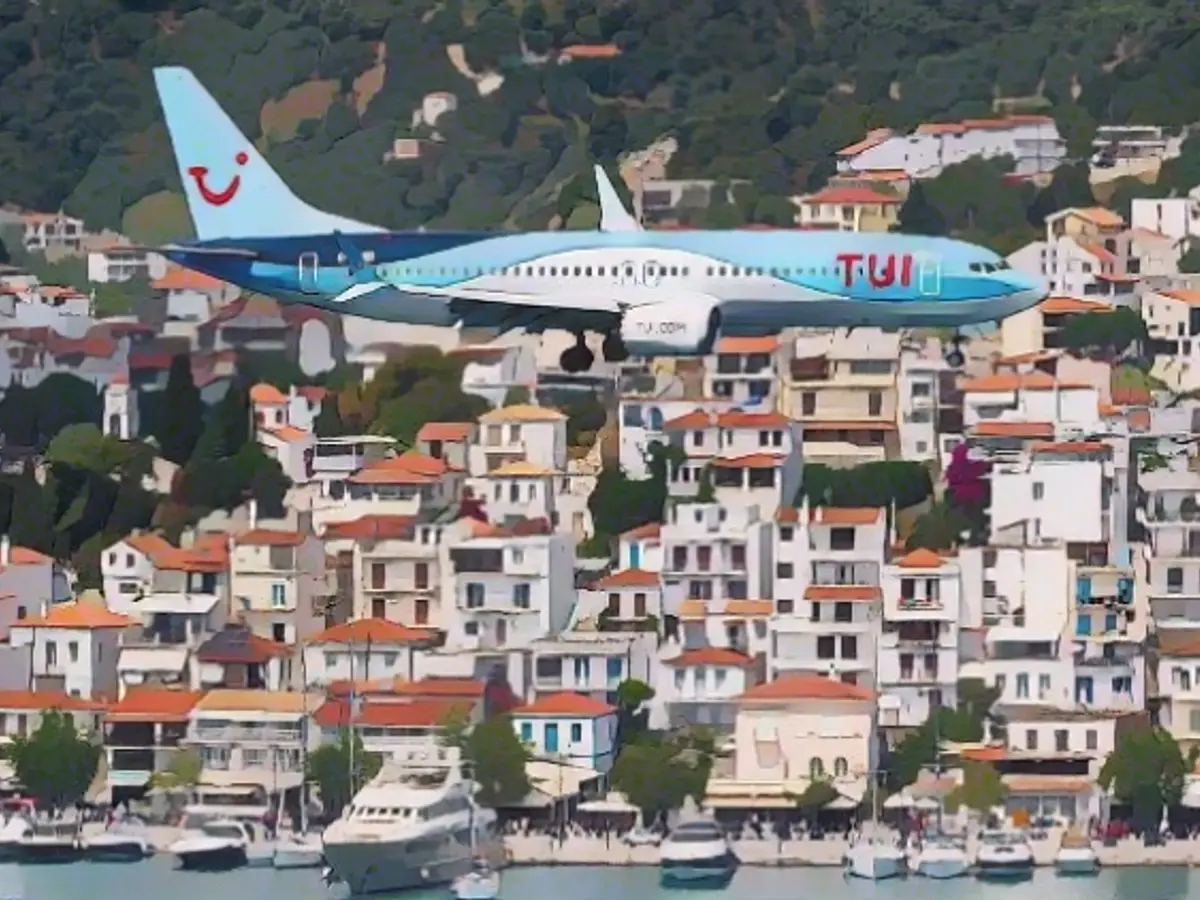TUI finally shakes off corona crisis
The tourism group TUI is earning more than ever before, also thanks to price increases. In operational terms, the company now wants to exceed the pre-corona level. The bookings for the coming year so far offer enough reason for optimism. Overall, TUI wants to tighten up further - and is probably aiming for the MDAX.
Thanks to a strong summer season, the travel group TUI achieved record sales and more than doubled its operating result in the past financial year. The adjusted operating result (EBIT) amounted to 977 million euros in the financial year to September, with the seasonally most important final quarter in the summer alone generating 1.2 billion euros. Before the coronavirus pandemic in 2019, the Group had generated EBIT of more than one billion euros - a level that TUI is aiming for in 2024.
Revenue climbed by a quarter to a record high of 20.7 billion euros. "Good stage success, but the work continues: our goal remains to make TUI more profitable, more efficient and stronger in all segments," explained TUI CEO Sebastian Ebel. The world's largest provider of package tours counted around 19 million customers after 16.7 million holidaymakers in the previous year - the best figure was 21 million in 2019.
IPO planned in London
The Hanover-based company is confident for the coming year: turnover is expected to increase by at least ten percent and EBIT by at least 25 percent. "Our strategic initiatives to increase value and the current booking trend lead us to expect a further improvement in 2024," said Ebel. "Tourism is growing." This is the first time since the coronavirus crisis that TUI has ventured an ambitious outlook early in the year.
The share price rose by almost five percent on the London Stock Exchange. The main listing on the London Stock Exchange, which the company opted for in 2014 due to the merger with the British TUI Travel, could soon be history. At the suggestion of investors, the Executive Board is examining a delisting and listing in the Prime Standard on the Frankfurt Stock Exchange, which could open the door to the MDAX. According to TUI, share trading has increasingly shifted to the shares listed on the Hanover regional stock exchange in recent years. A proposal for a decision is to be submitted to the Annual General Meeting in February.
Debt mountain getting smaller - more important than records
Inflation has not deterred TUI customers from traveling, as the travel group focuses on the high-priced offer, where demand is robust. "The market has become more difficult in the lower market segment," said Ebel. After a sharp rise, prices normalized again. Average prices in the winter season are five percent higher than in the previous year and bookings are already eleven percent higher.
The outbreak of the war in Israel against the radical Islamic group Hamas in October had dampened bookings for neighboring Egypt, a popular winter destination, for around six weeks. The dip in demand is currently being ironed out.
Only a small part of the summer program has been sold. "Initial signs point to a strong season," explained TUI. Bookings are 13 percent up on the previous year with prices four percent higher. TUI is hoping for growth from a standardized booking platform that links the range of tours and tickets for excursions or events.
At the bottom line, the listed company earned 456 million euros. Last year, TUI had made a loss of 213 million euros, as coronavirus travel restrictions had weighed on business until early summer. Thanks to the strong growth, TUI was able to reduce its net debt by a good third to 2.1 billion euros. The company still has some way to go here, said Ebel. For the time being, this is more important than celebrating record operating results.
Read also:
- Why there is still no EU funding for green Saar steel
- Politicians at a loss after shock news
- Court of Auditors criticizes the state government's debt plan
- Wind and solar: grid costs to be distributed more fairly
Due to a successful summer season and strong demand for high-priced travel offerings, TUI significantly increased its revenue and operating result, surpassing pre-pandemic levels. Despite the optimistic outlook for the tourism industry, TUI's CEO emphasizes the importance of further improving profitability, efficiency, and market position within all segments.
In light of strong strategic initiatives and robust booking trends, TUI plans to increase its revenue by at least 10% and its operating result by at least 25% for the coming year. Given the significant shift in share trading to the Hanover regional stock exchange, the Executive Board is examining a possible delisting from the London Stock Exchange and listing in the Prime Standard on the Frankfurt Stock Exchange, potentially achieving a place in the MDAX.
Source: www.ntv.de








